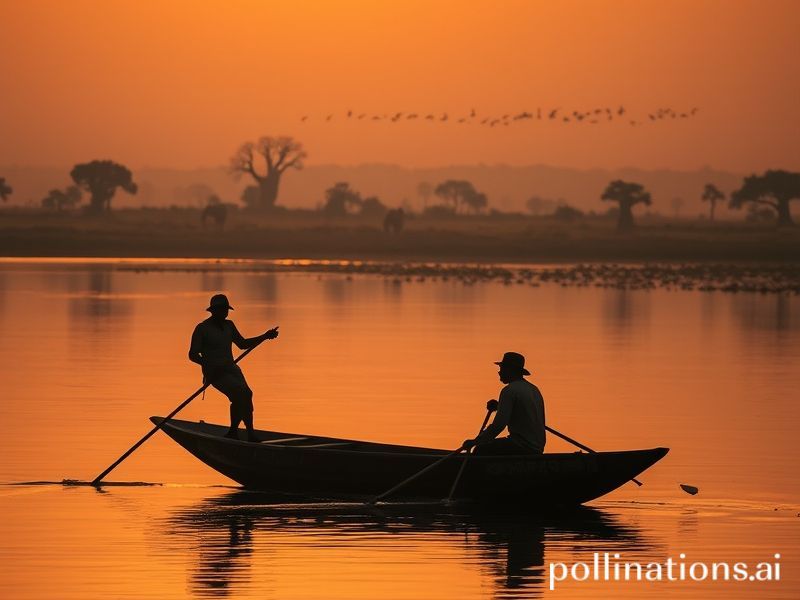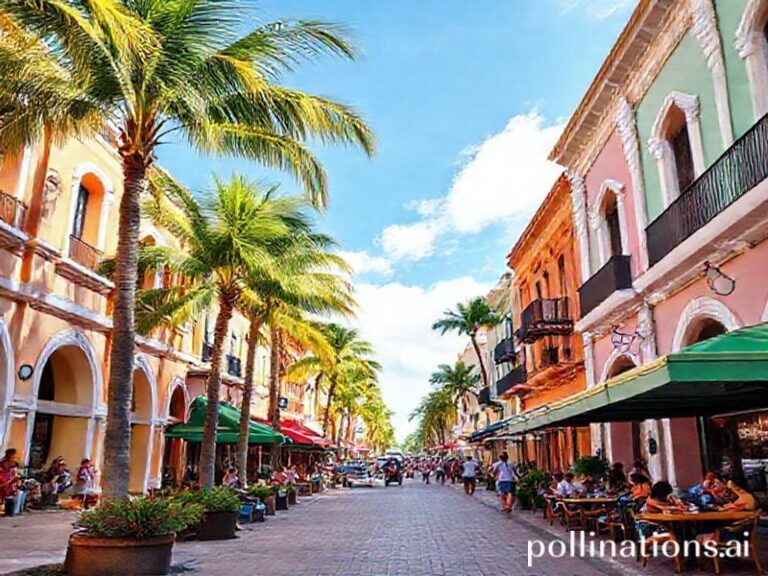Angola: The World’s Most Honest Mirror Reflects Our Oily, Ironic Future
Luanda, Thursday – Somewhere between the oil rigs and the rusting Soviet apartment blocks, Angola has quietly become the punch-line the world pretends it isn’t in on. Once the Cold War’s favorite proxy slug-fest, the country now exports two commodities in bulk: crude petroleum and sardonic lessons in how to survive the twenty-first century with style. The first keeps Europe’s diesel humming; the second is free, provided you can stomach the irony.
Let’s zoom out. At Davos they still refer to Angola as an “emerging market,” which is polite code for “still emerging after forty-seven years.” The IMF smiles, adjusts its cufflinks, and signs another memorandum. Meanwhile, a Chinese state-owned firm lays fiber-optic cable beside roads originally built by Portuguese engineers who left so fast in 1975 they forgot their dictionaries. That cable now carries TikTok dances from Cabinda to Guangzhou, compressing half a millennium of colonial hangover into a fifteen-second clip. Globalization, like a drunk tourist, has stumbled in, spilled rum on the carpet, and asked whether you take Visa.
Angola matters because it is the world’s most honest mirror. It shows what happens when petrodollars meet post-Marxist kleptocracy, when the climate crisis knocks on a coastline already eroding under the weight of offshore platform ballast. The Gulf of Guinea warms faster than the Mediterranean; Luanda’s fishermen watch French sardine populations migrate south like retirees fleeing taxes. Brussels frets about Mediterranean “climate refugees” yet remains blissfully unaware that the first wave may speak Portuguese and remember the Eurovision runner-up from 1996.
In Washington, think-tank analysts write breathless reports titled “Angola: The Next Frontier,” as if frontiers still exist and aren’t just lines drawn by people who never visited. They note the new 1,300-km railway to the Democratic Republic of Congo—built, of course, by the same Chinese creditors who now own a measurable slice of Congolese cobalt that powers your “ethical” electric vehicle. One Belt, One Road, One Very Awkward Board Meeting in the Afterlife.
Europe’s green-energy evangelists adore Angola’s lithium deposits the way medieval crusaders adored relics: shiny, distant, and morally uncomplicated until you actually get there. A Portuguese utility firm just signed a memorandum to build solar farms in Namibe province, promising “local jobs” while importing inverters from Shenzhen. The sun will presumably be subcontracted to the lowest bidder.
Yet the Angolan elite have perfected the art of living well in a poorly run country. Yachts the size of apartment blocks bob in Luanda’s yacht club marina—yes, that’s a thing—while pot-holed avenues host more Lamborghinis per capita than Rome. The trick is to keep the contradictions humming like the generators that kick in every time the national grid remembers it’s underfunded. There is a certain elegance in charging iPhones by candlelight; it suggests the future and the past have agreed to timeshare.
For the rest of us, Angola offers a masterclass in how global capital performs remorse. After the civil war ended in 2002, international oil majors arrived with apologies wrapped in community-engagement brochures. They built schools that close at noon because teachers haven’t been paid since the IMF demanded austerity, and hospitals where the ultrasound machine works but the electricity doesn’t. Still, the logos look terrific in CSR slide decks.
And so we return to the moral of the story, conveniently located next to the duty-free shop. Angola teaches that every barrel of oil consumed in Berlin or Boston contains roughly 0.7 milliliters of someone else’s deferred democracy. The planet’s energy transition will be financed—at least in part—by the very countries most likely to drown first. If that strikes you as ironic, congratulations: you’re now fluent in the lingua franca of the twenty-first century.
The takeaway? Next time you fill up or plug in, spare a thought for the place that made it possible. Angola will still be here, balancing on the high wire between catastrophe and carnival, wondering when the rest of us will admit we’re all in the same circus.







